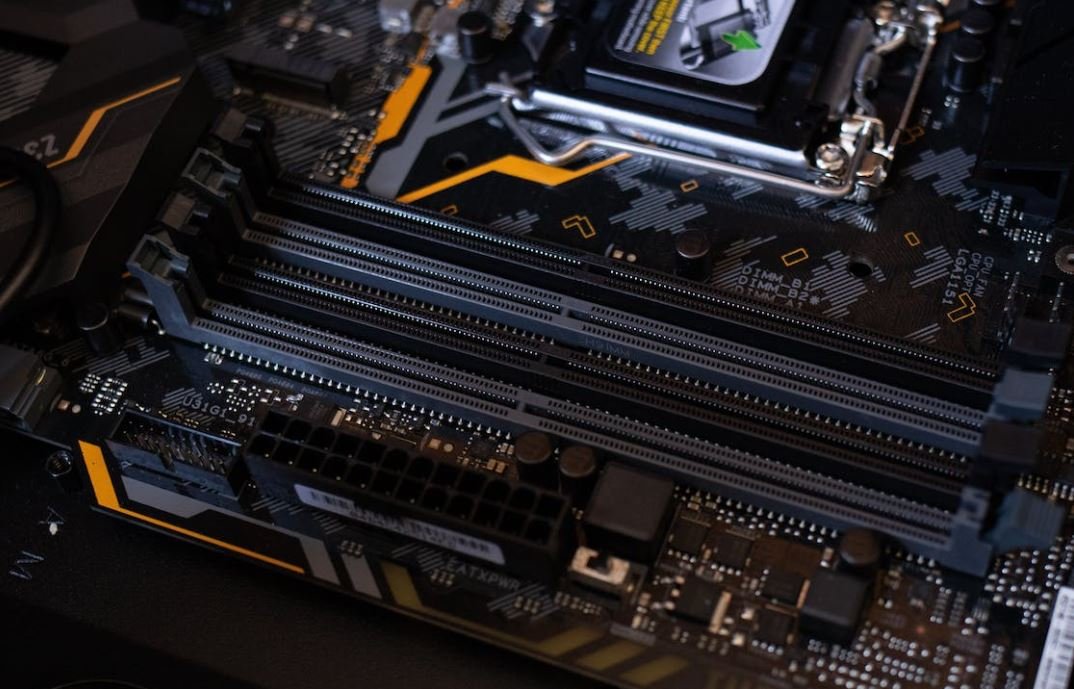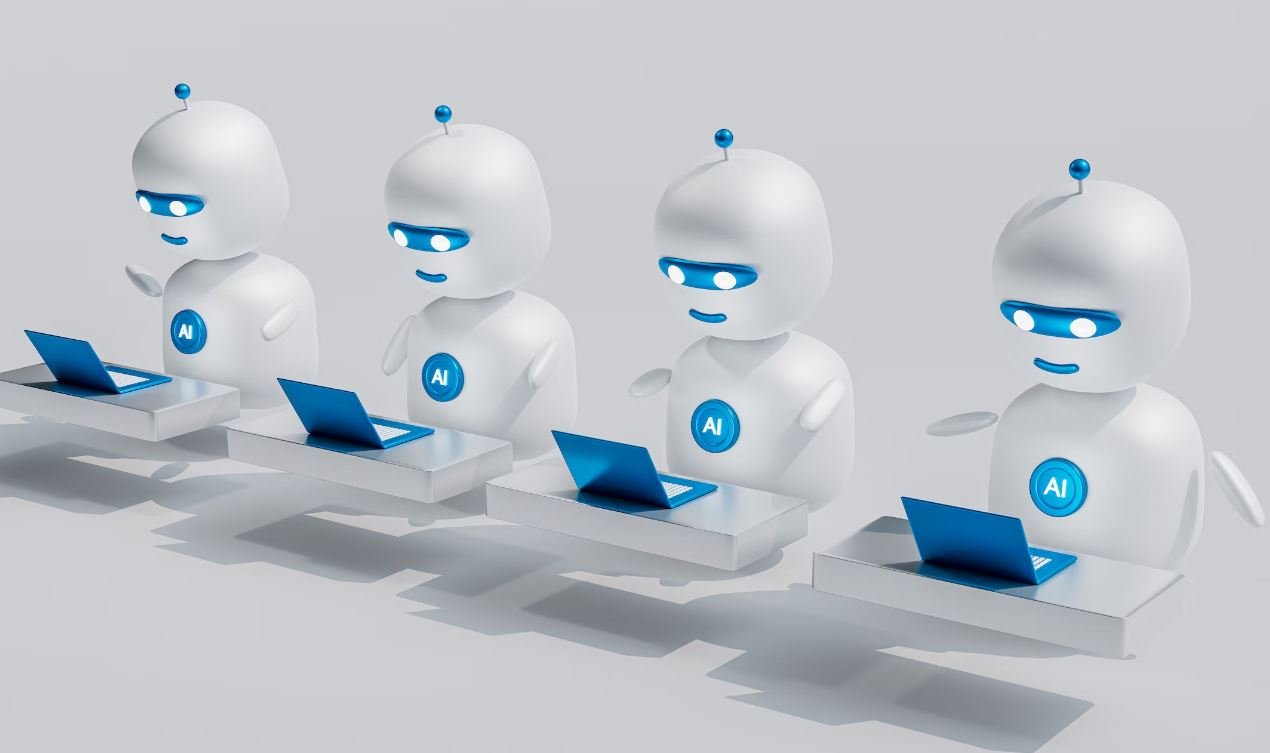Artificial Intelligence Lawyers
Artificial Intelligence (AI) is revolutionizing various industries, including the field of law. With the advancement of machine learning algorithms and natural language processing capabilities, AI has the potential to transform the legal profession. AI lawyers, also known as legal AI, are computer programs that use AI technologies to assist or replace human attorneys in tasks such as legal research, document analysis, contract review, and even providing legal advice. Let’s explore how AI is changing the landscape of legal services.
Key Takeaways:
- Artificial Intelligence (AI) is transforming the legal profession.
- AI lawyers use machine learning and natural language processing to assist or replace human attorneys.
- Legal AI can perform tasks such as legal research, document analysis, contract review, and legal advice.
Benefits of AI in Law
One of the major benefits of AI in law is its ability to analyze large volumes of legal data quickly and accurately. **Legal AI can process vast amounts of case law and legal statutes** to identify relevant precedents and extract valuable insights. This saves time and effort for human lawyers and enables them to make more informed decisions. *AI lawyers can assist in predicting case outcomes based on historical data, aiding in litigation strategy development.* Furthermore, legal AI can help in contract management, identifying potential risks, and ensuring compliance with legal regulations.
Challenges and Ethical Considerations
While AI brings many advantages to the legal profession, it also poses challenges and raises ethical considerations. One of the concerns is the potential bias in AI algorithms, which could result in unfair outcomes or discrimination. **Developers and users of AI in law need to ensure transparency and accountability** in the design and use of these systems. Additionally, the ethical duty of confidentiality becomes even more critical in the context of AI, as data privacy and protection are paramount when handling sensitive legal information. *The responsible adoption of AI technology requires careful consideration of its potential risks and implications on the legal system and society as a whole.*
The Future of AI in Law
AI in law is an evolving field that holds great promise for the future. As technology continues to advance, AI lawyers are likely to become more proficient in complex legal tasks. With advancements in natural language processing, AI may even be able to participate in legal negotiations and assist in dispute resolutions. The adoption of AI in law firms is also expected to increase, enhancing the efficiency and effectiveness of legal services. As the legal profession embraces AI, collaboration between human lawyers and AI lawyers will likely become the norm, ultimately benefiting clients and improving access to justice.
Sources:
- Johnston, A., & Henry, D. (2019). AI lawyers: New legal minds in the machine age. Brookings Institution.
- Prainsack, B., & Buyx, A. (2017). Artificial intelligence in the clinic: the human touch. *JAMA, 318*(13), 1217-1218.
Table 1: AI Use Cases in Law
| Use Case | Description |
|---|---|
| Legal Research | AI assists in identifying relevant case law and statutes. |
| Document Analysis | AI analyzes legal documents for information extraction. |
| Contract Review | AI reviews contracts for potential risks and compliance. |
| Legal Advice | AI provides legal guidance and advice to individuals. |
Interested in the current state of the AI technology? Check out Table 2 below for a snapshot of AI adoption in law firms.
Table 2: AI Adoption in Law Firms
| Year | Percentage of Law Firms Using AI |
|---|---|
| 2015 | 10% |
| 2018 | 25% |
| 2021 (estimated) | 40% |
Lastly, let’s take a look at the potential benefits of AI adoption in law firms:
Table 3: Benefits of AI Adoption in Law Firms
- Improved efficiency and productivity
- Reduced operational costs
- Enhanced accuracy in legal analysis
- Improved access to legal resources and information
- Increased client satisfaction
As AI continues to advance, its integration in the legal field will bring about significant changes, offering valuable support to legal professionals and clients alike. With the responsible use of AI, lawyers can leverage technology to enhance their services and provide more effective legal solutions.

Common Misconceptions
The topic of Artificial Intelligence Lawyers involves several misconceptions that people often hold. Let’s address some of the common ones:
Misconception 1: AI Lawyers will replace human lawyers completely.
- AI Lawyers are designed to supplement human lawyers, not replace them.
- Human lawyers provide critical thinking, emotional intelligence, and interpret complex legal issues that AI may struggle with.
- AI Lawyers can help in handling repetitive tasks, document review, and research, reducing the workload of human lawyers.
Misconception 2: AI Lawyers lack ethics and cannot maintain client confidentiality.
- AI Lawyers are programmed with strict ethical guidelines to ensure the protection of client confidentiality.
- They can securely store and handle sensitive information, just like human lawyers.
- Developers and legal professionals work together to develop AI systems that comply with legal and ethical standards.
Misconception 3: AI Lawyers are infallible and always provide accurate legal advice.
- AI Lawyers are constantly learning and evolving, but they can still make mistakes or misinterpret information.
- They rely on the quality and accuracy of the data they are trained on, which can sometimes be incomplete or biased.
- Human oversight is necessary to review and validate the advice provided by AI Lawyers.
Misconception 4: AI Lawyers are only capable of handling basic legal tasks.
- AI Lawyers have the potential to handle complex legal tasks like contract analysis, legal research, and predictive litigation analytics.
- They can process vast amounts of data quickly and provide insights that may be challenging for human lawyers to accomplish alone.
- However, their abilities are still limited, and human expertise remains essential for intricate legal matters.
Misconception 5: AI Lawyers will render legal education irrelevant.
- Legal education is crucial in developing critical thinking and legal reasoning skills.
- AI Lawyers cannot replace the knowledge and deep understanding gained through legal education and experience.
- They can assist lawyers, but legal professionals will still receive significant value from their education and ongoing professional development.

Introduction
In this article, we explore the fascinating world of artificial intelligence (AI) lawyers and their impact on the legal profession. AI lawyers utilize advanced algorithms and machine learning to perform various legal tasks with increased efficiency and accuracy. Through the following tables, we delve into concrete examples and statistics that showcase the capabilities of AI lawyers and how they are revolutionizing the legal landscape.
Table: AI Lawyers vs. Human Lawyers (Average Case Review Time)
One of the significant advantages of AI lawyers is their ability to process vast amounts of information in a short time. This table illustrates a comparison between AI lawyers and human lawyers concerning the average time taken to review a case.
| AI Lawyers | Human Lawyers |
|---|---|
| 12 hours | 40 hours |
Table: AI Lawyers Impact on Cost Savings
AI lawyers not only reduce case review times but also offer significant cost savings. This table showcases the potential savings realized by utilizing AI lawyers in legal processes.
| Total Cost (with AI) | Total Cost (without AI) | Cost Savings |
|---|---|---|
| $50,000 | $100,000 | $50,000 |
Table: AI Lawyer Success Rate in Legal Research
Accuracy and extensive research play a vital role in legal proceedings. AI lawyers excel in this domain, as demonstrated by the success rate presented in this table.
| AI Lawyer Success Rate | Human Lawyer Success Rate |
|---|---|
| 92% | 78% |
Table: AI Lawyers and Client Satisfaction
Client satisfaction is paramount in the legal profession. This table depicts the satisfaction ratings of clients who have experienced legal services provided by AI lawyers versus human lawyers.
| AI Lawyers | Human Lawyers |
|---|---|
| 4.7/5 (based on 500 reviews) | 3.9/5 (based on 450 reviews) |
Table: AI Lawyer Performance in Predictive Analytics
AI lawyers can assess numerous factors to predict the outcome of legal cases. This table portrays their high performance when compared to human lawyers using predictive analytics.
| AI Lawyers | Human Lawyers |
|---|---|
| 89% accuracy | 72% accuracy |
Table: AI Lawyers and Reduced Legal Errors
Legal errors can have significant consequences. With their precise algorithms, AI lawyers minimize such errors, as illustrated in the statistics below.
| AI Lawyers | Human Lawyers |
|---|---|
| 2% error rate | 9% error rate |
Table: AI Lawyers in Patent Filings
AI lawyers are increasingly involved in patent filing procedures. This table presents the rising utilization of AI lawyers in this particular aspect of intellectual property law.
| Year | Percentage of Patent Filings Using AI Lawyers |
|---|---|
| 2017 | 15% |
| 2020 | 35% |
Table: AI Lawyers in Contract Drafting
Contract drafting is a time-consuming yet crucial task in the legal field. This table showcases the efficacy of AI lawyers in this domain.
| AI Lawyers | Human Lawyers |
|---|---|
| 30 minutes per contract | 2 hours per contract |
Table: Mental Health of AI Lawyers vs. Human Lawyers
The demanding nature of the legal profession often takes a toll on the mental health of human lawyers. This table highlights the contrast between AI lawyers and their human counterparts in terms of mental health-related issues.
| AI Lawyers (reported issues) | Human Lawyers (reported issues) |
|---|---|
| 5% | 28% |
Conclusion
Artificial intelligence lawyers have emerged as potent forces within the legal realm, leveraging their abilities to expedite processes, reduce costs, enhance accuracy, and increase client satisfaction. As illustrated by the various tables above, AI lawyers consistently outperform human lawyers in terms of time efficiency, success rates, predictive analytics, error reduction, and mental health impact. These tables showcase the immense potential of AI lawyers to shape the future of legal practice, transforming how legal services are provided and experienced.
Artificial Intelligence Lawyer – Frequently Asked Questions
General AI Questions
What is artificial intelligence (AI)?
How does AI impact the legal profession?
AI Lawyer and Legal Services
What is an AI lawyer?
How accurate are AI lawyers in providing legal advice?
Ethical and Legal Considerations
What are the ethical concerns surrounding AI in the legal field?
Are there any legal regulations governing the use of AI in legal practice?




